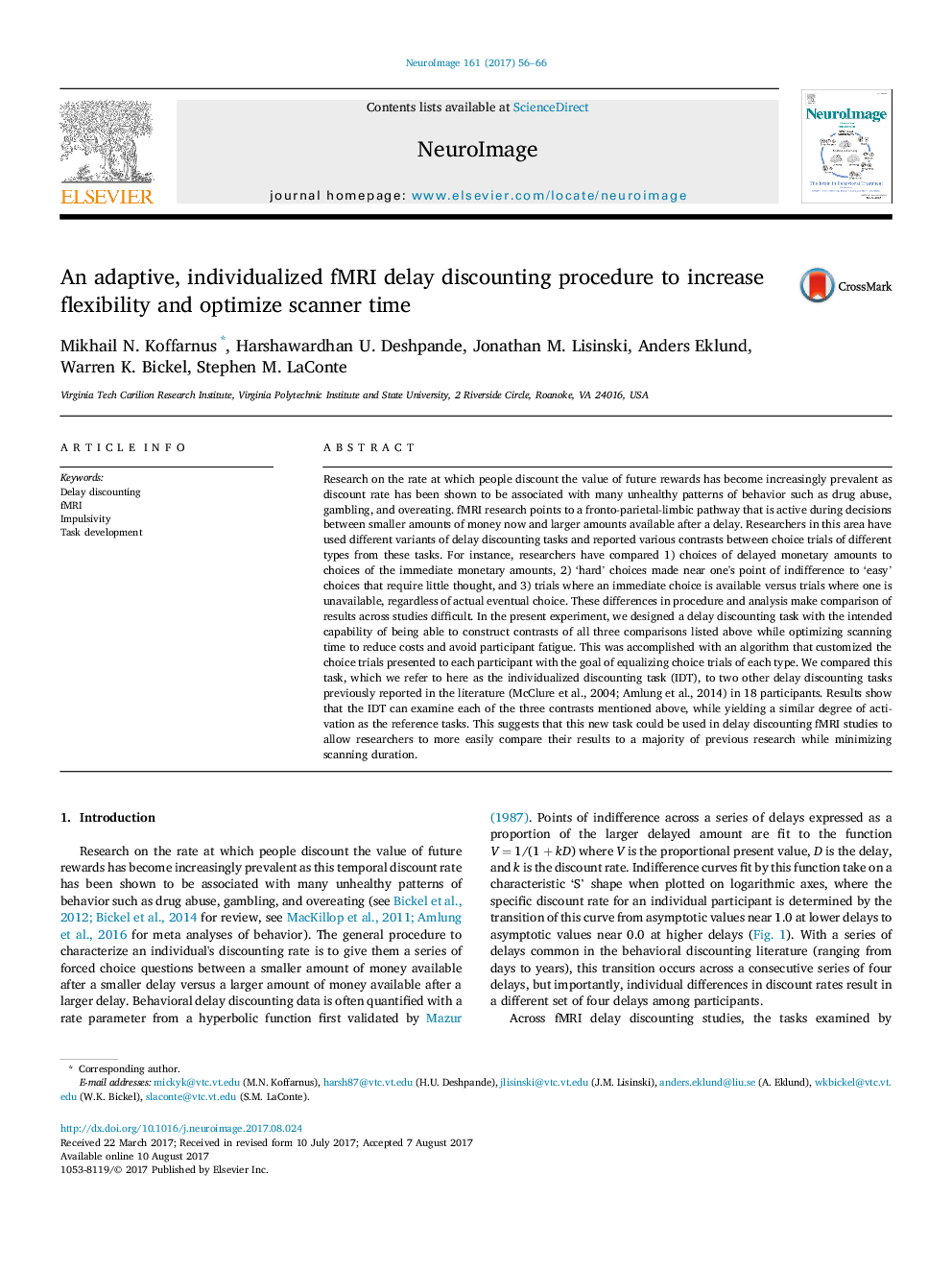| کد مقاله | کد نشریه | سال انتشار | مقاله انگلیسی | نسخه تمام متن |
|---|---|---|---|---|
| 5630811 | 1580849 | 2017 | 11 صفحه PDF | دانلود رایگان |

- fMRI delay discounting tasks vary in choice trial types and possible contrasts.
- Our Individualized Discounting Task (IDT) includes more diverse trial types.
- IDT scanning duration is optimized by individualizing trials for each participant.
- The IDT can examine more contrasts than existing tasks.
- A similar degree of activation was observed with the IDT and reference tasks.
Research on the rate at which people discount the value of future rewards has become increasingly prevalent as discount rate has been shown to be associated with many unhealthy patterns of behavior such as drug abuse, gambling, and overeating. fMRI research points to a fronto-parietal-limbic pathway that is active during decisions between smaller amounts of money now and larger amounts available after a delay. Researchers in this area have used different variants of delay discounting tasks and reported various contrasts between choice trials of different types from these tasks. For instance, researchers have compared 1) choices of delayed monetary amounts to choices of the immediate monetary amounts, 2) 'hard' choices made near one's point of indifference to 'easy' choices that require little thought, and 3) trials where an immediate choice is available versus trials where one is unavailable, regardless of actual eventual choice. These differences in procedure and analysis make comparison of results across studies difficult. In the present experiment, we designed a delay discounting task with the intended capability of being able to construct contrasts of all three comparisons listed above while optimizing scanning time to reduce costs and avoid participant fatigue. This was accomplished with an algorithm that customized the choice trials presented to each participant with the goal of equalizing choice trials of each type. We compared this task, which we refer to here as the individualized discounting task (IDT), to two other delay discounting tasks previously reported in the literature (McClure et al., 2004; Amlung et al., 2014) in 18 participants. Results show that the IDT can examine each of the three contrasts mentioned above, while yielding a similar degree of activation as the reference tasks. This suggests that this new task could be used in delay discounting fMRI studies to allow researchers to more easily compare their results to a majority of previous research while minimizing scanning duration.
Journal: NeuroImage - Volume 161, 1 November 2017, Pages 56-66